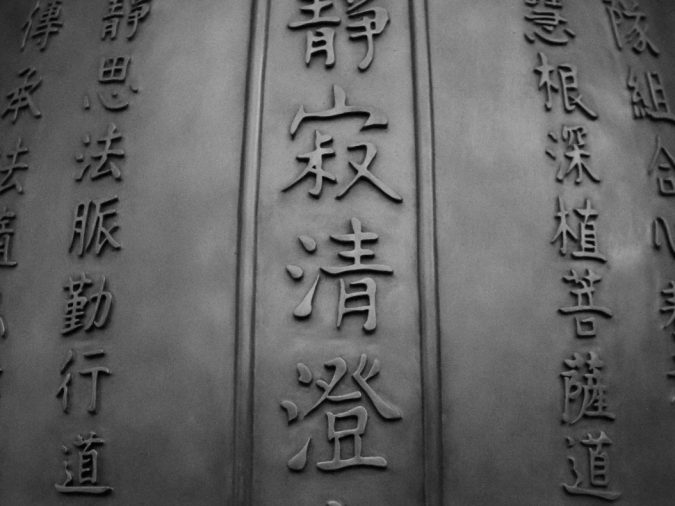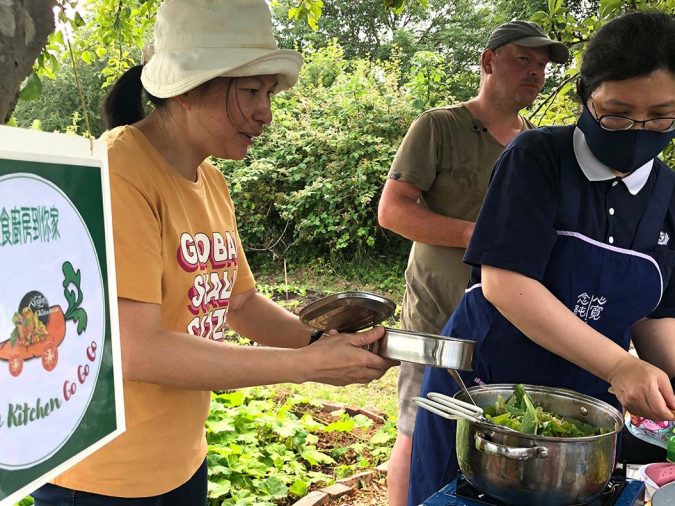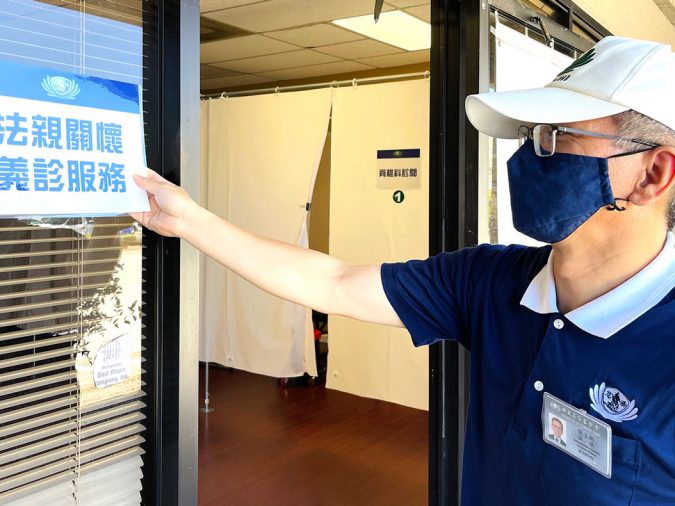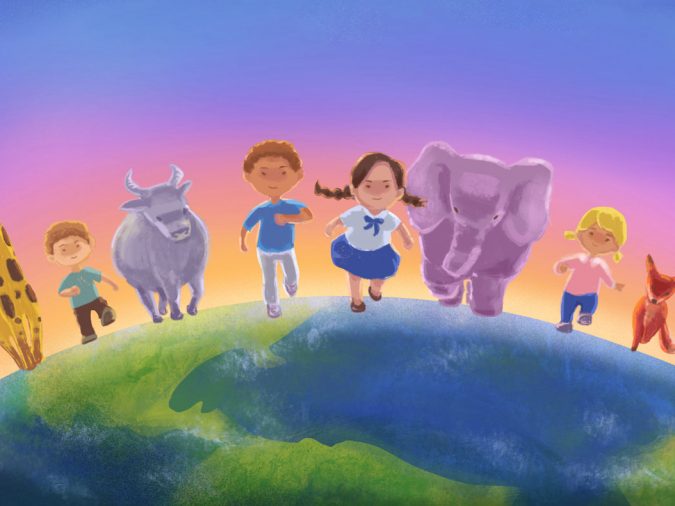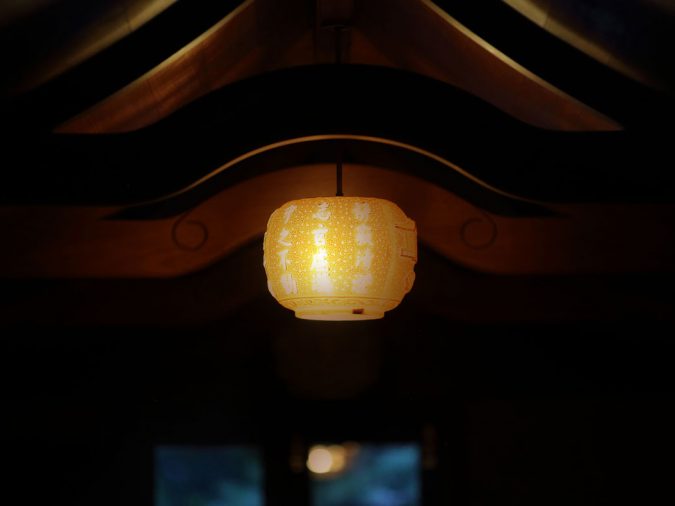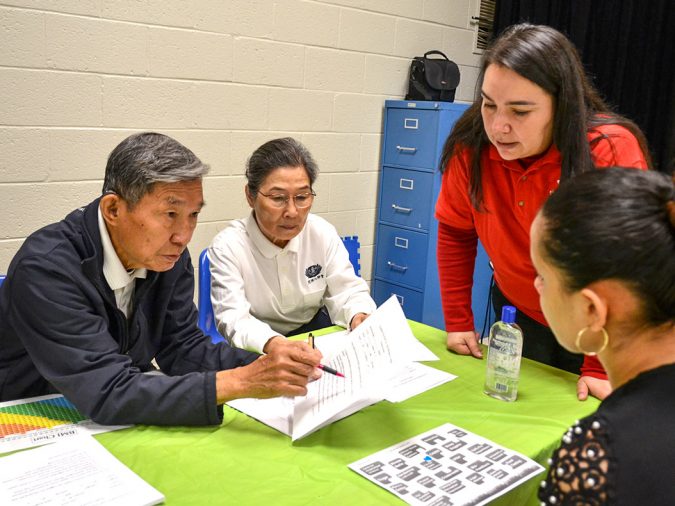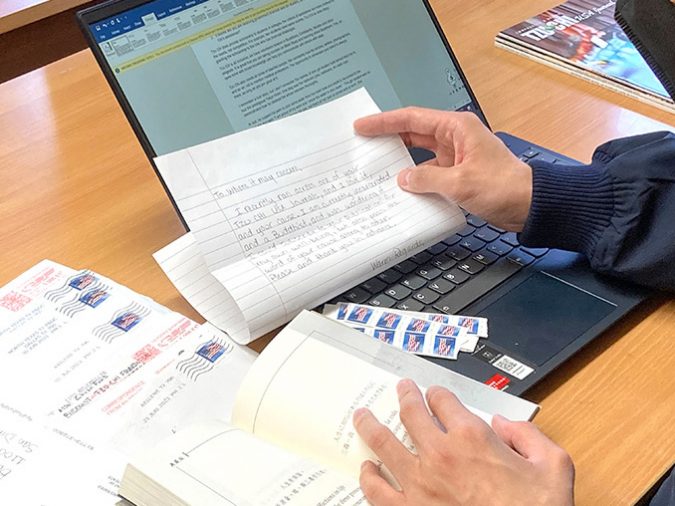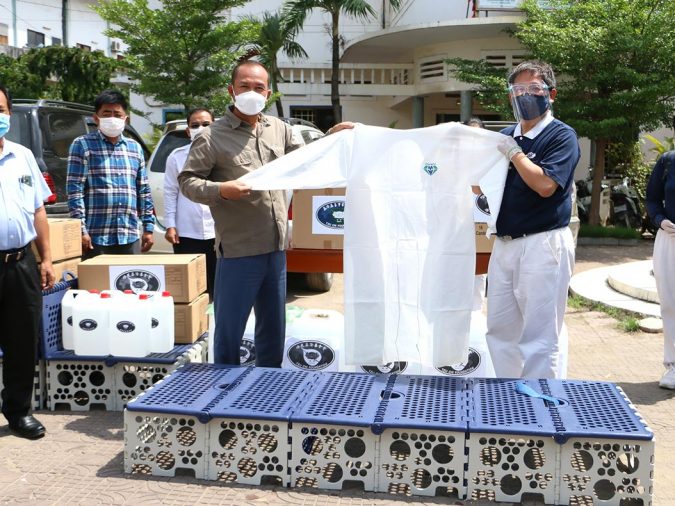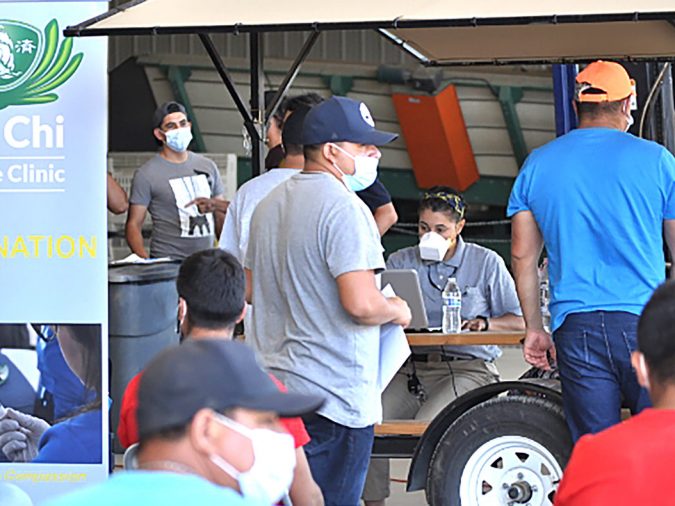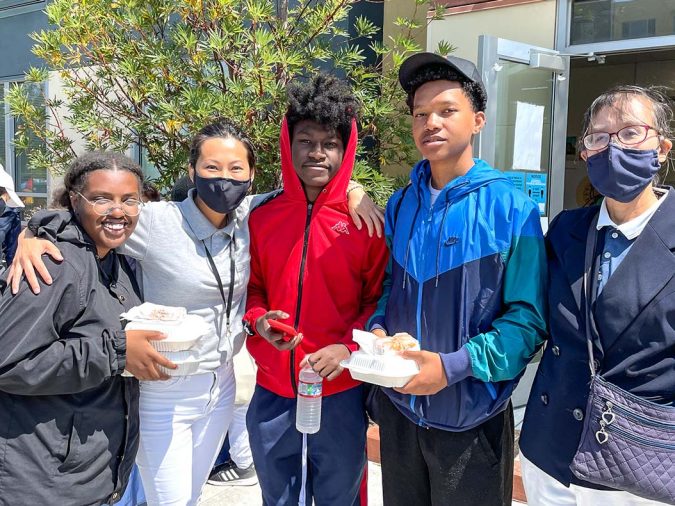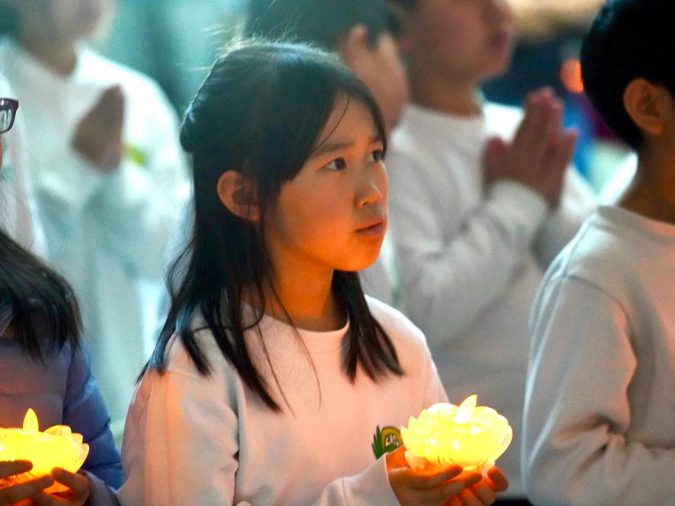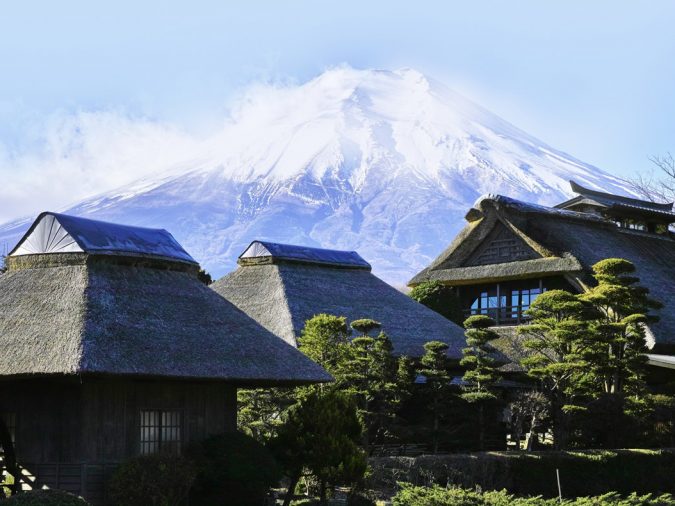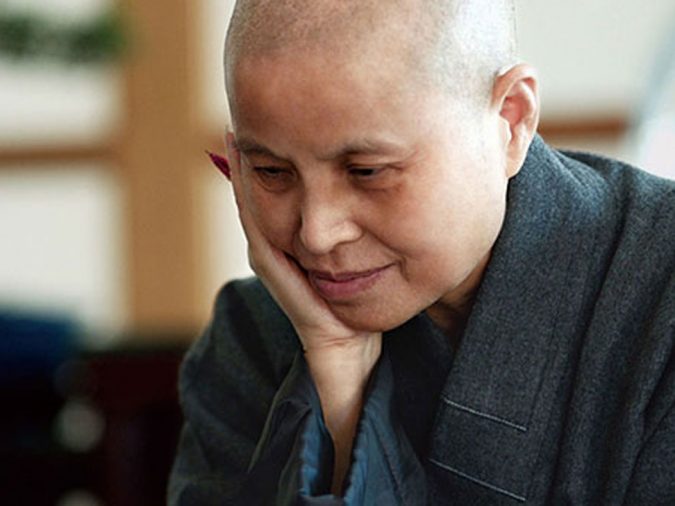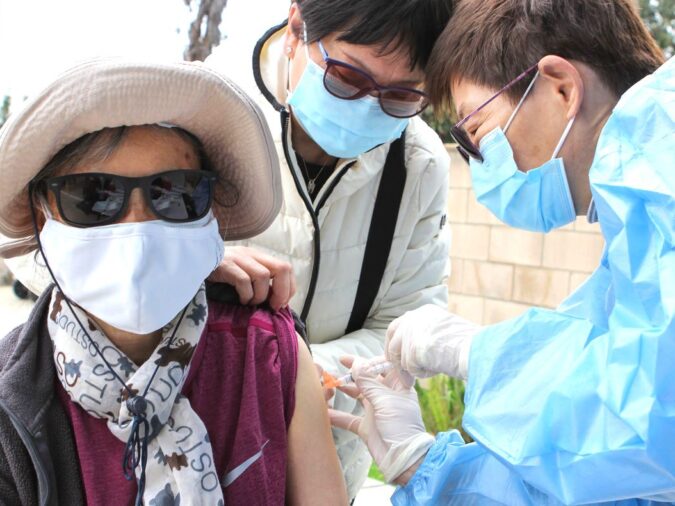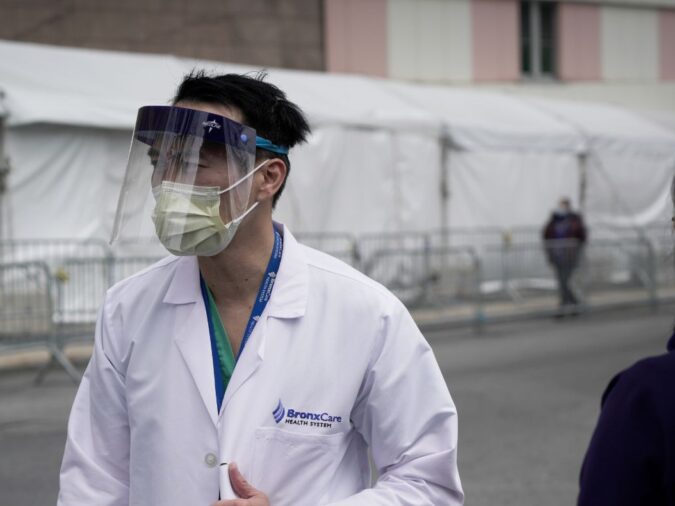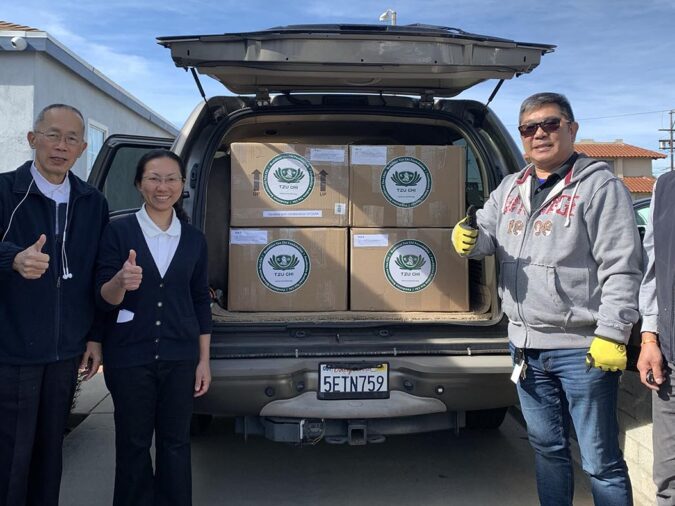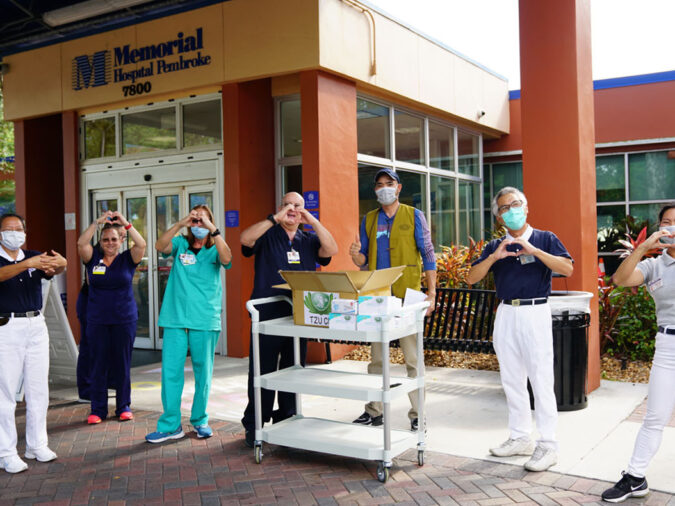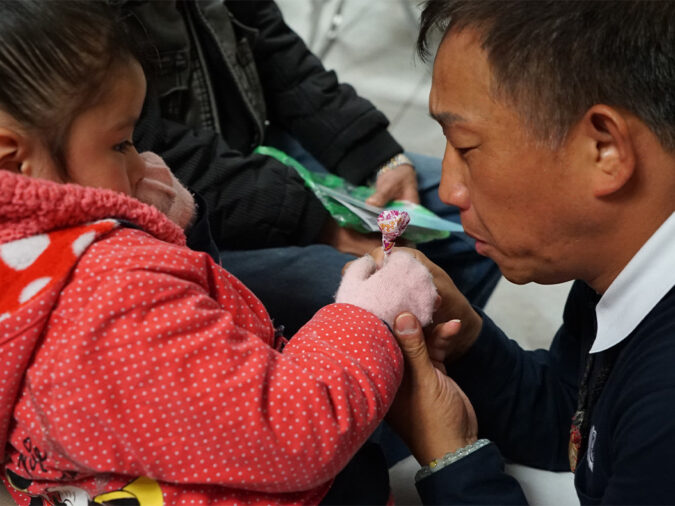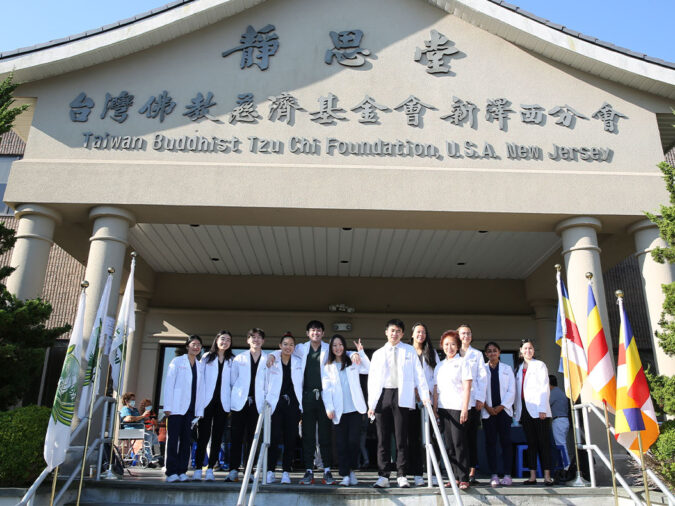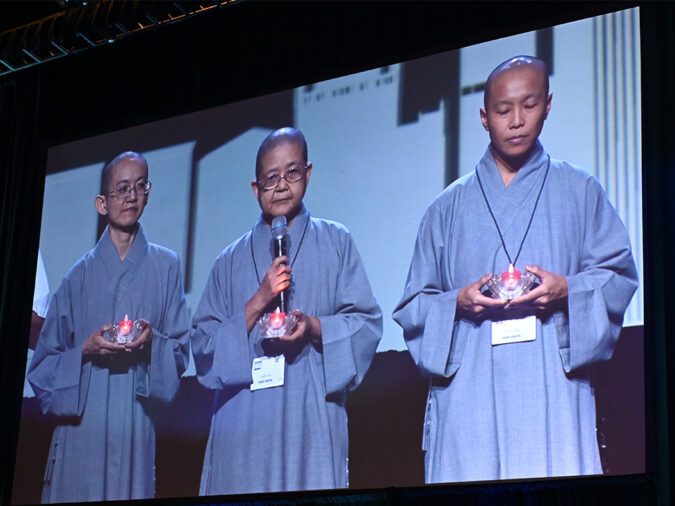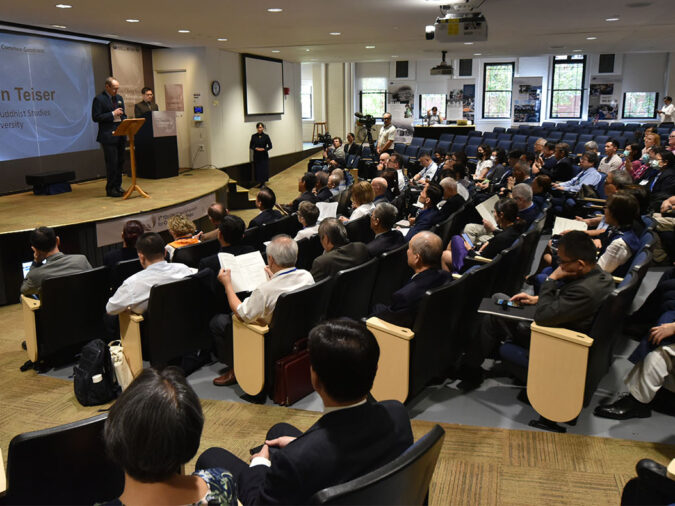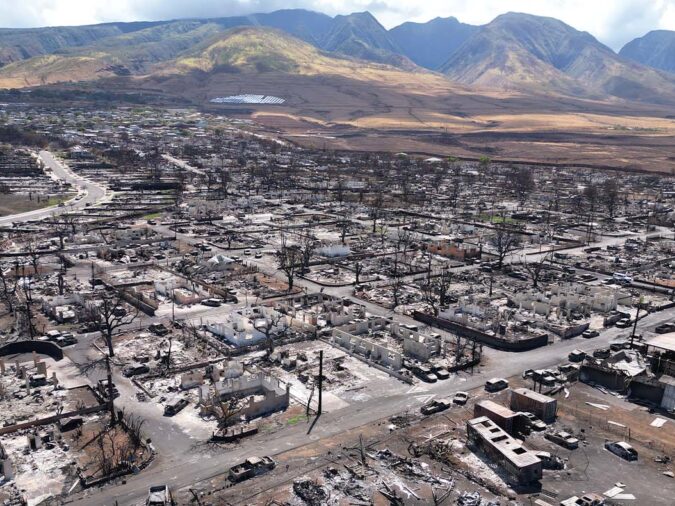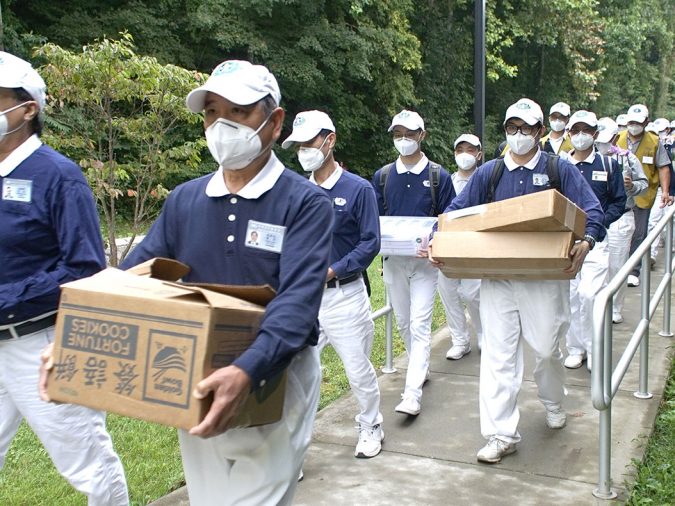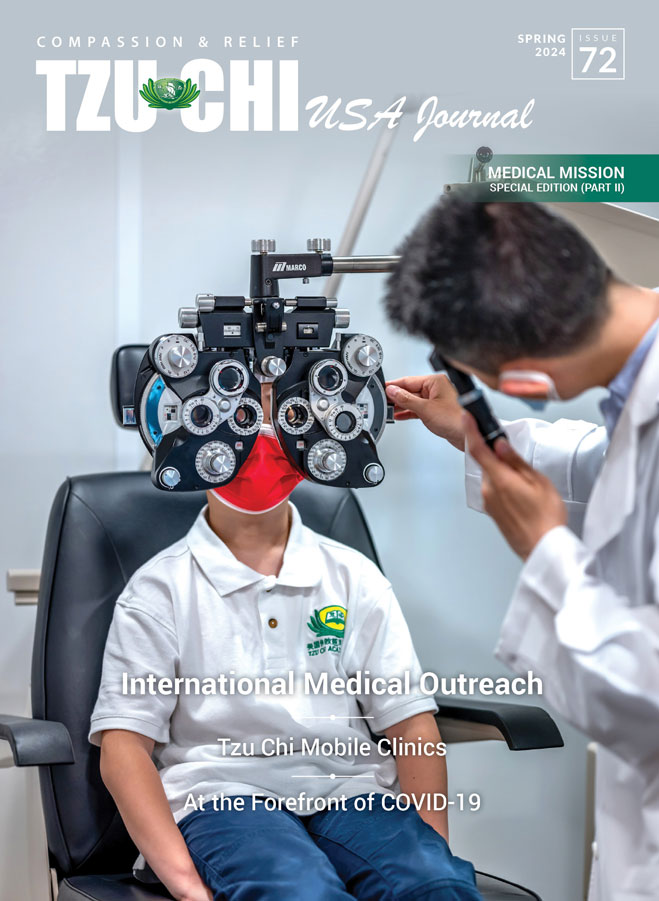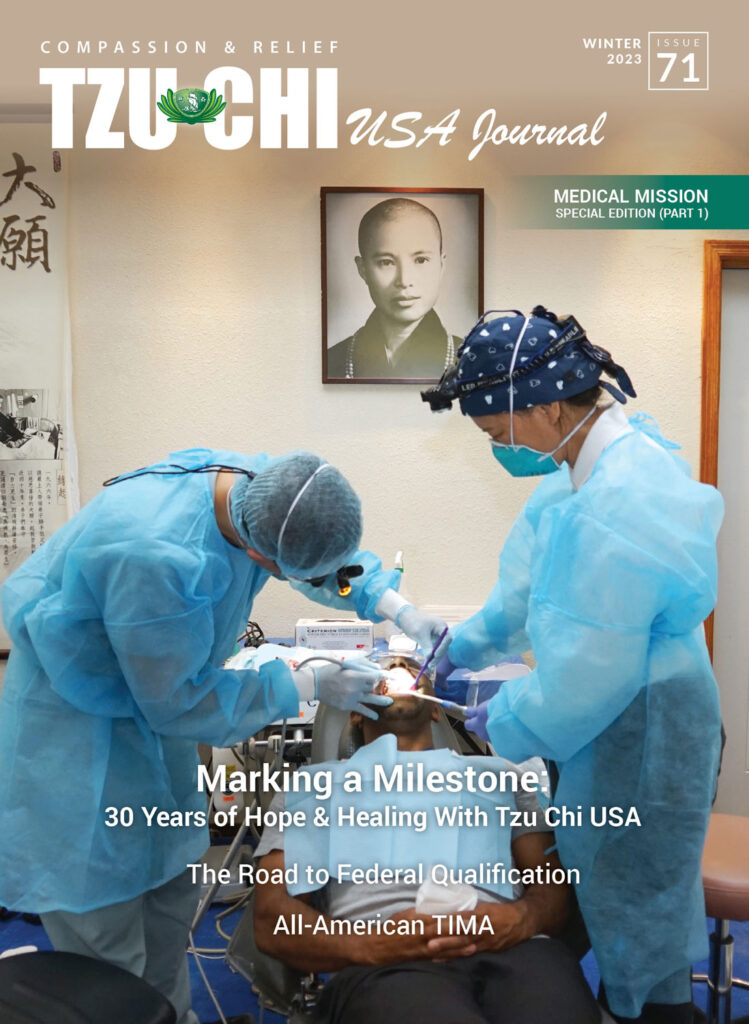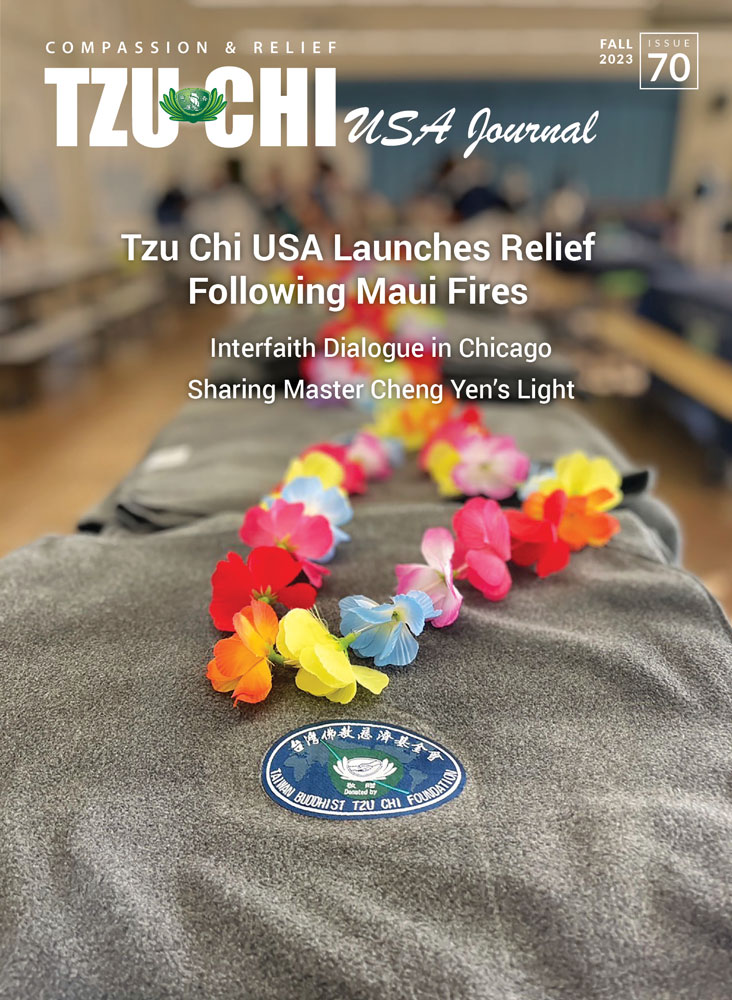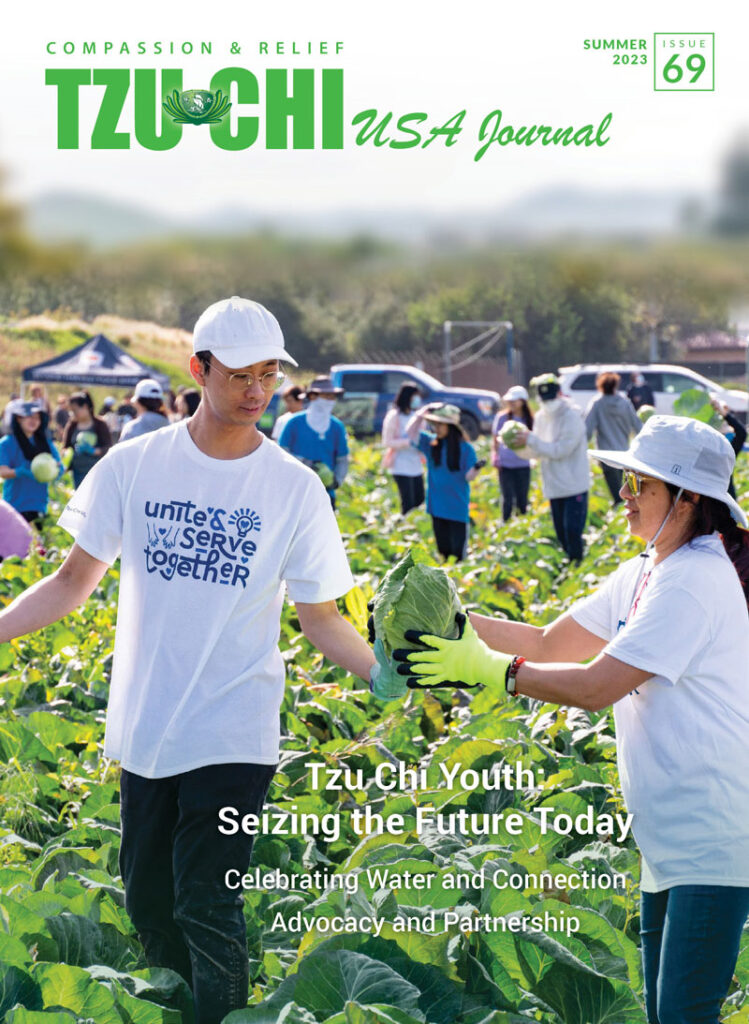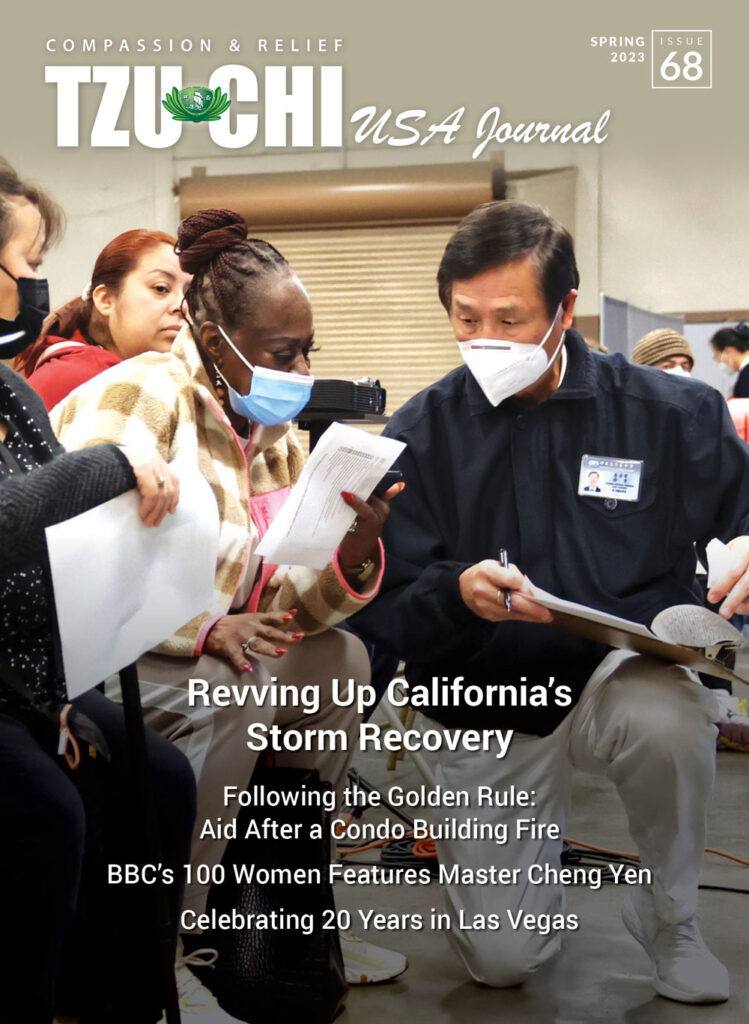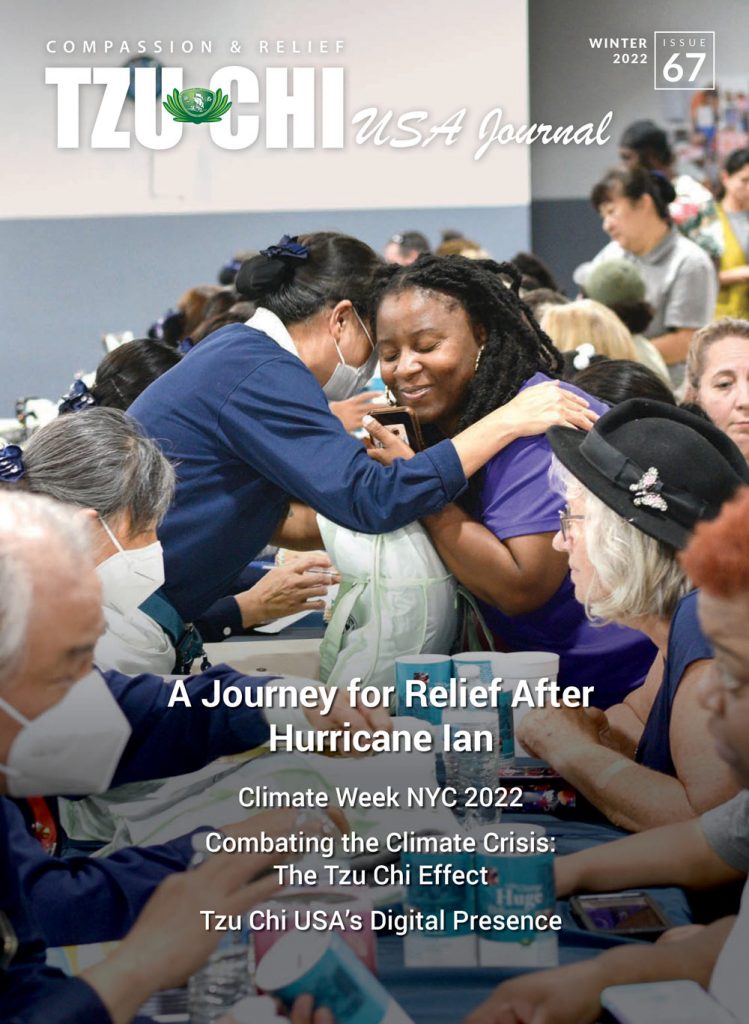Ecuadorians for Ecuadorians:
A Circle of Care Providers Food During the Pandemic
Ecuadorians for Ecuadorians: A Circle of Care Provides Food During the Pandemic
By Ida Eva Zielinska
Published #62 | Fall 2021 Issue
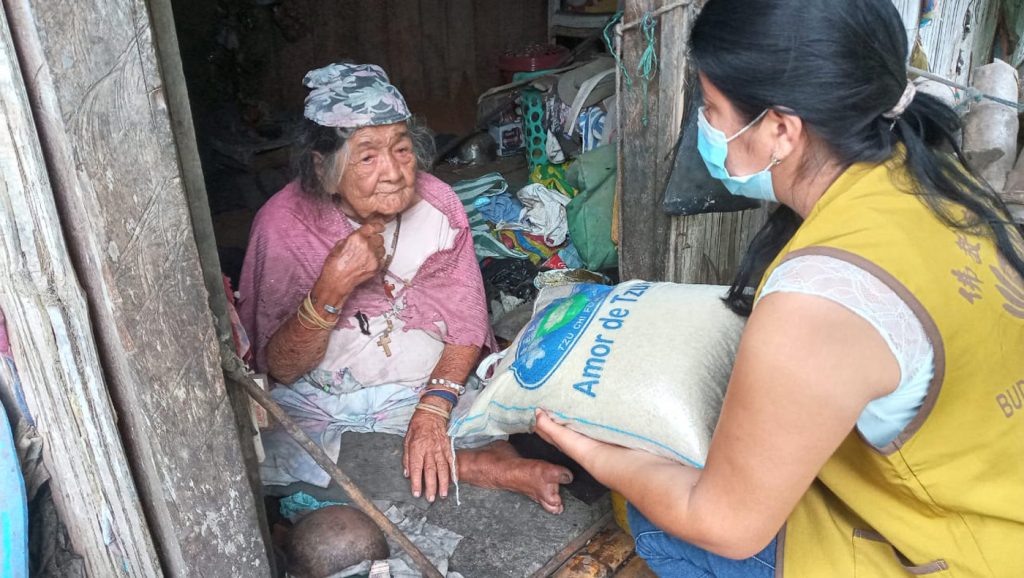
Volunteers from Portoviejo travel far to bring a food kit to a lonely elderly woman in Junin during the 7th food distribution in February 2021. Photo/Tzu Chi Ecuador Team
SHARE
For us, it’s something we didn’t expect, being here after five years. I never thought that I would be helping my people in the name of Tzu Chi. We’re in charge of Tzu Chi right now here in Ecuador. And normally what happens is somebody from Taiwan who comes to live in [a country], they are the face of Tzu Chi in that country. But in this case, it’s us: Ecuadorians for Ecuadorians.
Boris Garcia
Tzu Chi Volunteer
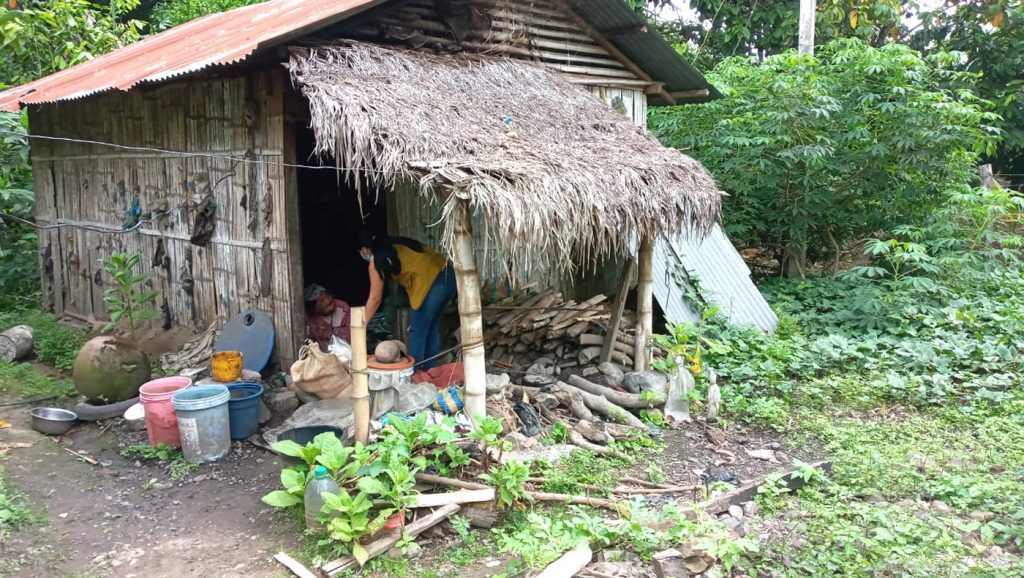
In July 2021, Tzu Chi Ecuador marked its 5th Anniversary with celebrations in Santa Ana and Canoa to commemorate the moment. In attendance were honored guests, local residents and community volunteers, and the two Tzu Chi Ecuador volunteers who have been part of the story from the beginning, Jenyffer Ruiz and Boris Garcia.
In Canoa, the ceremony took place in the Church of San Andres, making the event even more special since Tzu Chi rebuilt this church following its destruction in the magnitude 7.8 earthquake that struck the nation in April 2016. Under the tragic circumstances of this devastating and deadly catastrophe, the love story between Tzu Chi and Ecuador was born.
Tzu Chi volunteers from outside the country arrived within days and quickly launched a Cash-For-Relief program in the hardest-hit cities in Manabi Province along the coast. The program motivated residents to rise above their sorrow and distress and begin the massive clean-up that lay ahead while earning money to feed their families amid an interrupted economy. When, a year later, in 2017, severe flooding impacted thousands of people – some still recovering from the earthquake – Tzu Chi’s Cash-For-Relief program helped restore hope once again.
Tzu Chi International Medical Association (TIMA) initiated its first medical outreach mission in Ecuador in 2019, providing free healthcare services for those in need. From then on, Jenyffer and Boris saw a growing interest from their fellow Ecuadorians to join Tzu Chi’s aid efforts by offering a helping hand.
“From 2016 to 2019, we were just Jenyffer and me. We were doing everything. And right now, we have a group of volunteers that are in training to become [certified],” Boris explained, “They’re wearing the grey shirts [uniform].” On top of this, there are around 150 community volunteers who wear a Tzu Chi vest. “They’re training to go to the grey shirt. Every day we’re getting more volunteers. I feel really happy about that,” Boris shared enthusiastically.
It will come as no surprise then that when the COVID-19 pandemic struck around the world in 2020, the growing team of volunteers in Ecuador was eager to assist their fellows as everyone’s situation was suddenly increasingly grave:
Ecuador is one of the poorest countries in America. Ecuador was already in a depression before COVID started; there were very few jobs available, people were struggling. So, with COVID, things just got so much worse. More people are poor, in extreme poverty.
Jenyffer Ruiz
Tzu Chi Volunteer
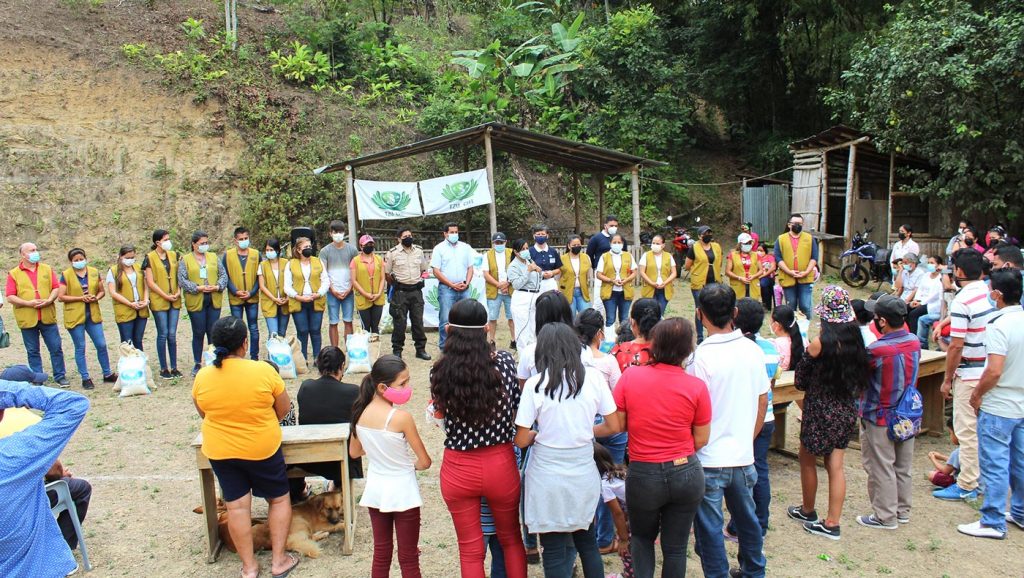
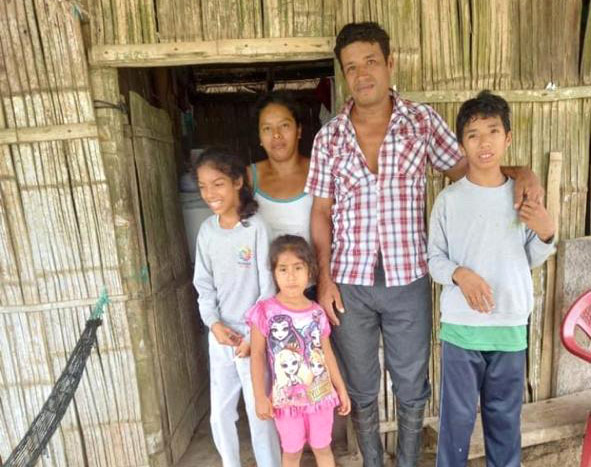
However, many volunteers were experiencing challenges of their own, including Boris. He was in the construction business and had up to five projects a year until 2020, when it all stopped due to lockdowns. “We were in our homes for three months, and I couldn’t do anything. My construction business disappeared and I didn’t have any income,” he recounts, adding, “I was devastated because I needed to let go of all my workers.”
Boris was desperate for a solution to help his family survive. “I needed to reinvent myself. I saw that during the pandemic, one of the businesses that were still alive was everything related to food,” and so he and his wife opened a convenience store. He also offered a job to some of his former workers. Although the 150 he once employed had dwindled to 20, “we’re working on providing for our families,” Boris states proudly.
Actually, his career pivot would soon benefit Tzu Chi’s aid initiatives. Tzu Chi Taiwan had noted the situation in Ecuador following the outbreak of COVID-19, where Jenyffer confirmed that “a lot of people are scrambling even to put food on their tables.” In response, Tzu Chi Taiwan offered to fund the purchase of food for distribution to those most in need and cover the fuel cost for its transport. And Boris’s concession store became the headquarters for the whole operation.
A Logistical Feat Each Month
The food distribution mission focuses on cities in Manabi Province where Tzu Chi has provided aid since 2016, so there is a base of community support, namely, Portoviejo, Canoa, Santa Ana, and Manta. But, preparing from several hundred to 3,000 food kits per month is no easy feat. “He has to send monthly like tons, I mean, I’m not talking about small quantities but tons of food to every city,” Jenyffer points out.
Boris is humble but admits, “Every food kit weighs around 60 pounds. Of course, it’s not just me. Maybe, I can say I’m the brain behind all the operations here. But I have relatives, I have employees that work in their free time, and I have a bunch of friends.” Some neighbors joined in, too, after seeing big trucks coming in and going out once a month and asking Boris, “Why don’t you give me one of these kits?”
Boris would answer, “Did you lose your job? Do you have any illnesses or problems in your body? You can’t work, you can’t walk or anything like that?” When they said no, he’d counter with, “So, you don’t qualify to apply for that kind of help. So now that you asked, you can help me to make all this situation possible.” And many are, learning what Boris himself learned.
Sometimes you have your challenges, but there are people that show you that you’re in a really good position if you compare it to their life. [When] we started the distribution and we were going to all these places, we were seeing that there are people that maybe eat once a day. When you reflect on your life you see that …what you can do is put in a little bit of effort in order to help all those people.
Boris Garcia
Tzu Chi Volunteer
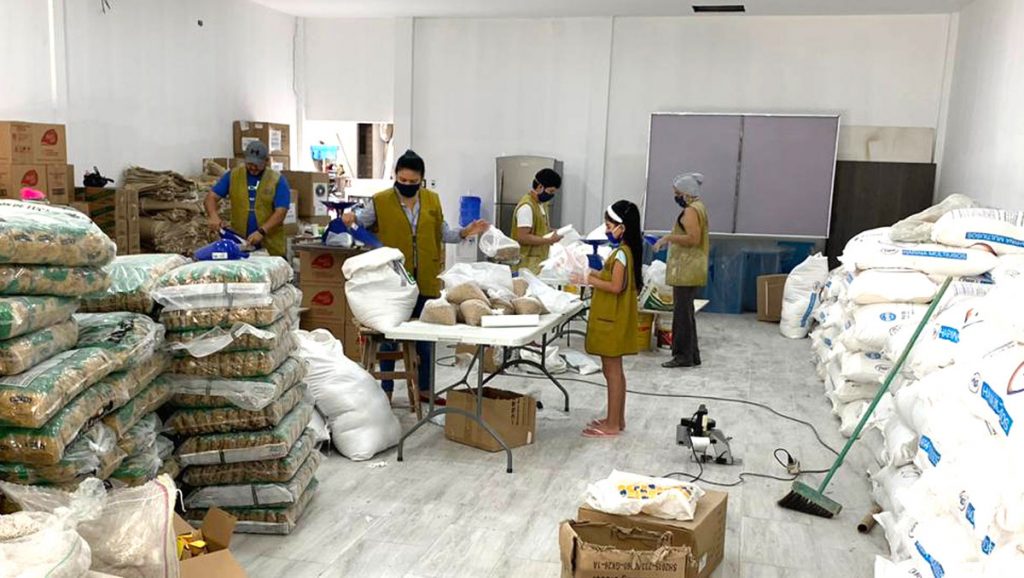
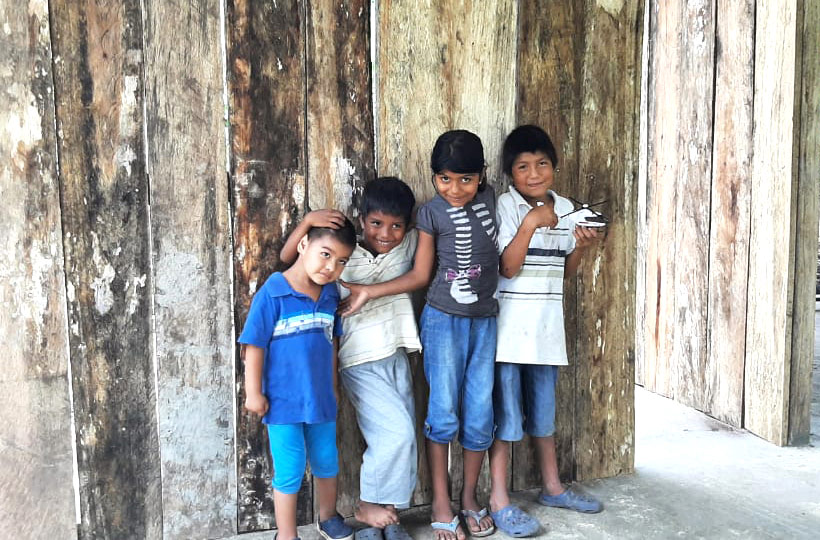
“Every month, he’s the one that buys the food,” Jenyffer explains. “The whole process starts when I start looking for suppliers,” Boris elaborates, saying that he seeks the best prices to buy as much as possible within the budget. “And then he has a place where he puts all the food. And it’s not like it’s already divided,” Jenyffer continues. It has to be portioned per household, then divided for transport to the four different cities.
Each food kit contains staples such as rice, lentils, two kinds of beans, cereal, oil, corn flour for tortillas, and noodles. “We designed this kit to last, for a regular family of four, to last a month,” Boris says, adding that “sometimes they split that kit and use it in three different families,” so each kit can be a lifeline for many.
Once the trucks arrive at their destination, bearing anywhere from between 250 and 800 food kits per city, local teams will unload and then distribute them over a few days. Rain or shine, on foot and even by boat, they’ll venture out, often across rough terrain to reach remote areas, some abandoned by the government.
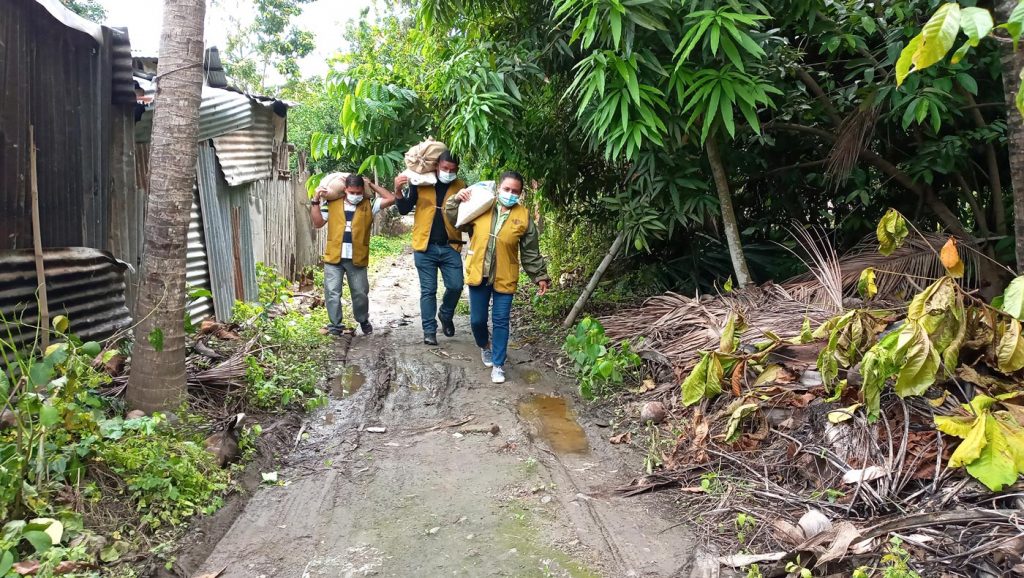
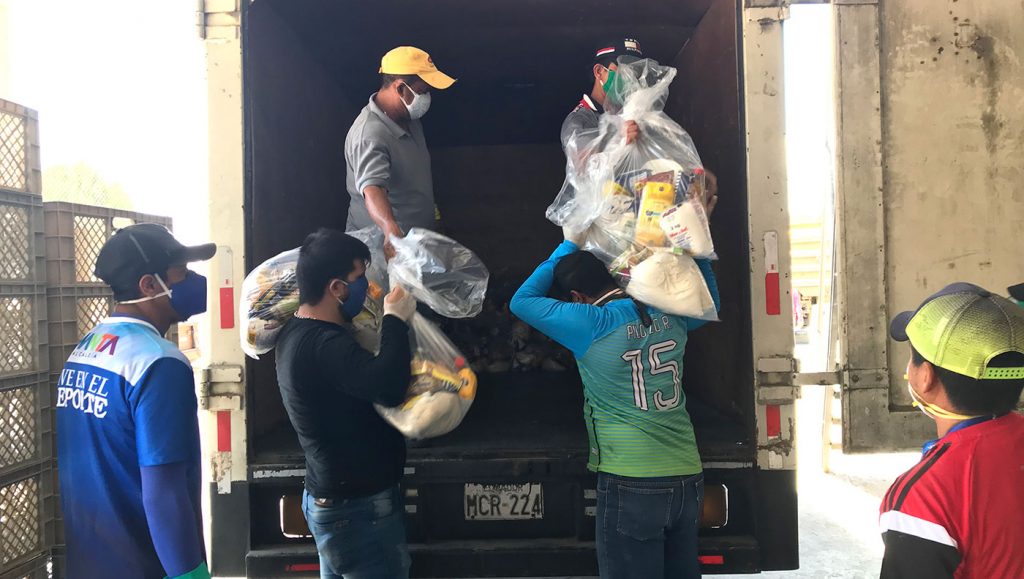
“In Portoviejo, Canoa, and Santa Ana, those towns are located in the countryside. Over the mountains, and you need to cross a river, and you need to do many, many things. It’s a difficult task, but that’s why we’re truly happy because there’s always more volunteers that want to go to more communities, to visit more people,” Boris elaborates. The dedication of those community volunteers sometimes even attracts assistance from firefighters and police officers in the area.
Networks of Volunteers in Every City Make It All Possible
The food distribution mission is to assist those most in need, and they can best be identified through local support, people who know their communities inside out. For instance:
In Portoviejo, Consuelito Rivadeneira, who’s the leader there, has been the community president for over 35 years. In that time, she knows who’s who. In Santa Ana, the same thing. Egda Macias, the person who’s helping us, she’s been working as a social worker for almost all her adult life, she knows the community and she also relies on other people who know the community to find out who needs [help].
Jenyffer Ruiz
Tzu Chi Volunteer
Manta is home base for Jenyffer and Boris, and the group of volunteers in the San Mateo area emerged after Tzu Chi International Medical Association’s outreach there in 2019. Estela Franco leads the group and the food distributions.
In Canoa, Anita Sanchez and Brigitte Gracias are the community leaders, and both are extremely committed, even at the cost of personal sacrifice.
In Anita’s case, “she’s from a very, very poor family,” Jenyffer explains. And, “she’s a single mother, and she needs to work, yet sometimes she sacrifices that and goes to do the [volunteering] job,” Boris added.
Unless I die, I will never stop being a Tzu Chi volunteer.
Anita Sanchez
Community Leader in Canoa
Their communities have noted Anita and Brigitte’s care about those most in need. Their persistence in providing help not only inspires the volunteers they lead but aid recipients as well. Luis, his wife, and two children are one example. Luis, a taxi driver, has been unemployed during the pandemic, yet after receiving a food kit from Tzu Chi, the family decided to bake bread to share with their neighbors.
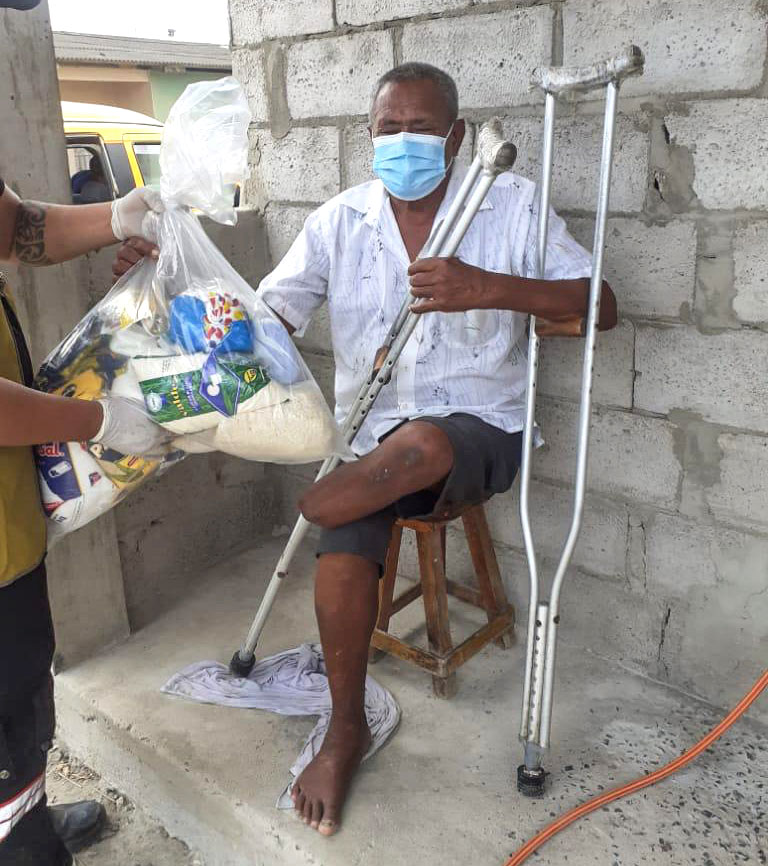
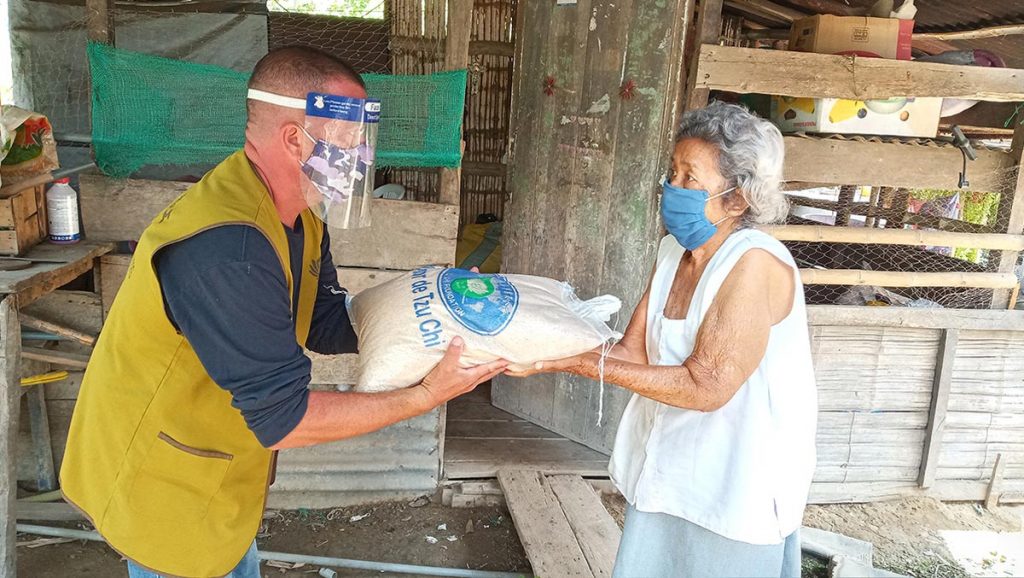
In Santa Ana, the network began with students who wanted to help following the floods that devastated the area in 2017. While that original group dwindled, when the pandemic struck, Boris and Jenyffer reached out to the mayor’s office, as they would know who was most in need. That’s how they established contact with Egda Macias, who was a social worker with the mayor’s office for years and knows the community.
Sadly, Edga was later infected with COVID and has been suffering long term effects, but the community group she organized has been able to proceed with the distributions, and more volunteers are joining. This is a blessing given the level of need for assistance in many families.
They expect these food kits every month. They can worry about other situations or necessities but about food they don’t need to worry anymore.
Boris Garcia
Tzu Chi Volunteer
Consuelito Rivadeneira, the team leader in Portoviejo, is another example of the unstoppable attitude of Tzu Chi Ecuador’s community leaders. Although she requires knee surgery and suffers as her knees often swell, making walking extremely painful, that doesn’t stop her from accompanying the team to distribute the food kits. Jenyffer sometimes tries to tell her not to go, but Consuelito will reply, “I must do this. I must get it done. The mission is important.”
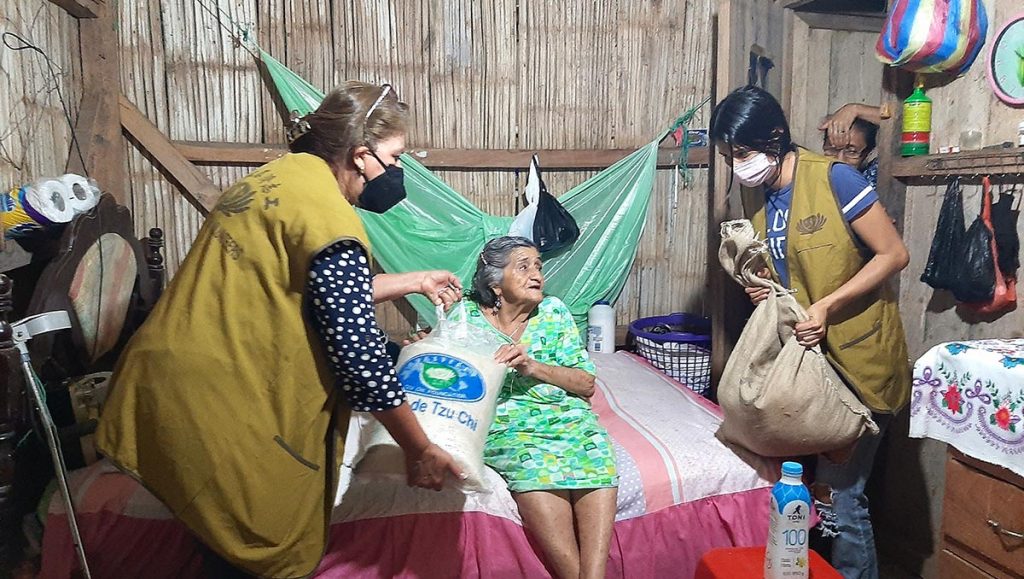
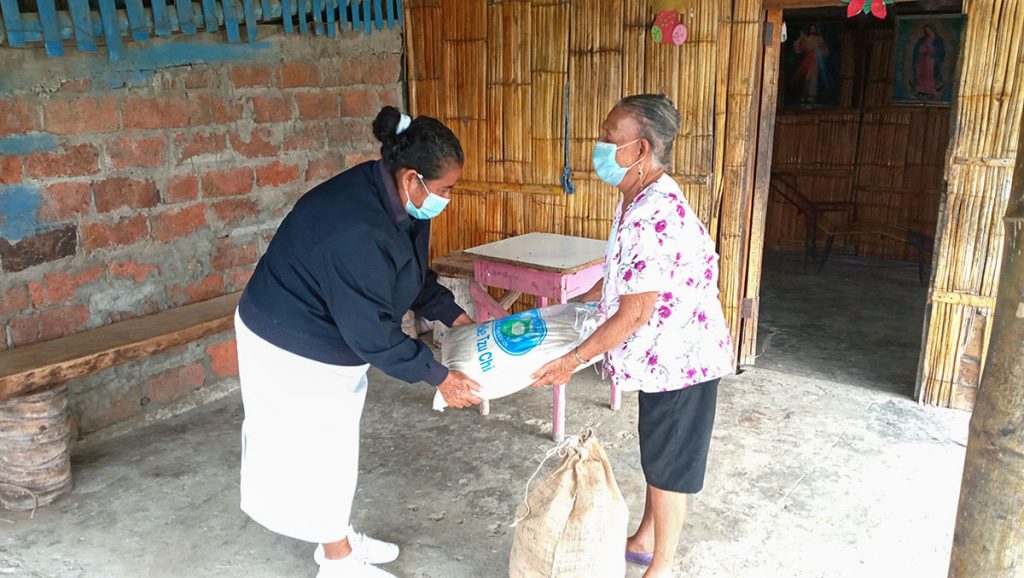
Consuelito also lives on a fixed income. Jenyffer recalls how “I’ve asked her to take money for the expenses she incurs during the distributions, like gasoline, and she refuses. She’s told me that I’m insulting her every time I ask for her to take money. So, it’s inspiring to see how people with very little want to give so much.”
The volunteer teams in each town go the extra mile to get the job done. Boris recounts that “sometimes the volunteers need to collect money to hire a truck to go to communities that are really far away. They collect money between them and they accomplish the mission even if they need to sacrifice their own resources.” And, it makes a world of difference for the most vulnerable members of each community. Some food recipients may also go on to become long-term charity care cases.
One recent case in Manta is that of Yessica Coromoto, a single mother of three abandoned by her husband when he returned to their homeland in Venezuela. She now lives in a shack with a dirt floor and some walls made of sheets. She has no choice but to leave her daughters alone when she sells coconuts on the streets, barely earning enough to pay the rent on the shack. “It’s heartbreaking to see those little girls there because anything could happen to them,” Jenyffer says, adding that the mom suffers from a blood disease and can’t afford the medication.
One must remember that these distributions of food kits are happening during a pandemic, which dramatically affected the team beginning in February 2021.
There was a point in February where things were really bad with COVID, especially in Portoviejo, where I would say more than 50% were infected. In every household somebody had it. So, people were really afraid, volunteers were really afraid. Of course, Master Cheng Yen always says safety is first, but I have to tell you, the volunteers, the leaders in the communities, they give of themselves as much as they can.
Jenyffer Ruiz
Tzu Chi Volunteer
By March, the Pisloy district became one of the epicenters of COVID cases in Portoviejo as entire families, entire blocks tested positive. Claribel Saltos, the volunteer team leader there, was tragically affected, losing several family members within a week or so, including her father, aunt, grandmother, and grandfather, with her mother and brother testing positive for COVID as well.
As Claribel struggled with grief, she commented, “It has been a nightmare!” Still, she continued to organize her volunteers to deliver food kits to those in need in the communities around her. Reflecting on it, Jenyffer said, “They want to do it. They want to be there for the people that need it because they know people depend on this.”
The dangerous rise in COVID infections in Portoviejo was not the only emergency that struck around this time. On February 12, some 215 miles away, in Chunchi, a landslide of unprecedented scale had brought massive destruction to a community. Tzu Chi Ecuador was ready, and the volunteers from different cities would unite to build a disaster relief team and launch their first mission.
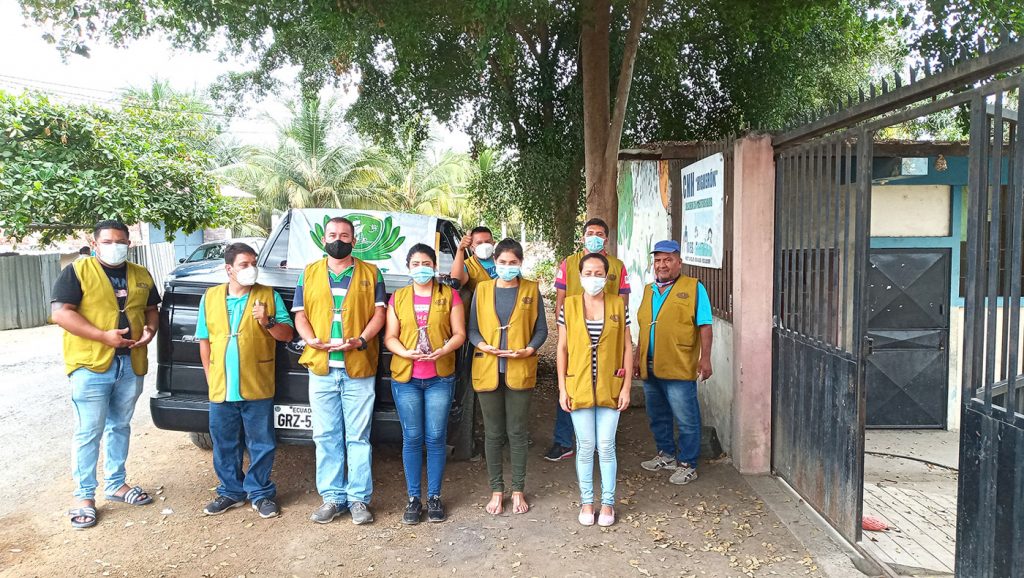
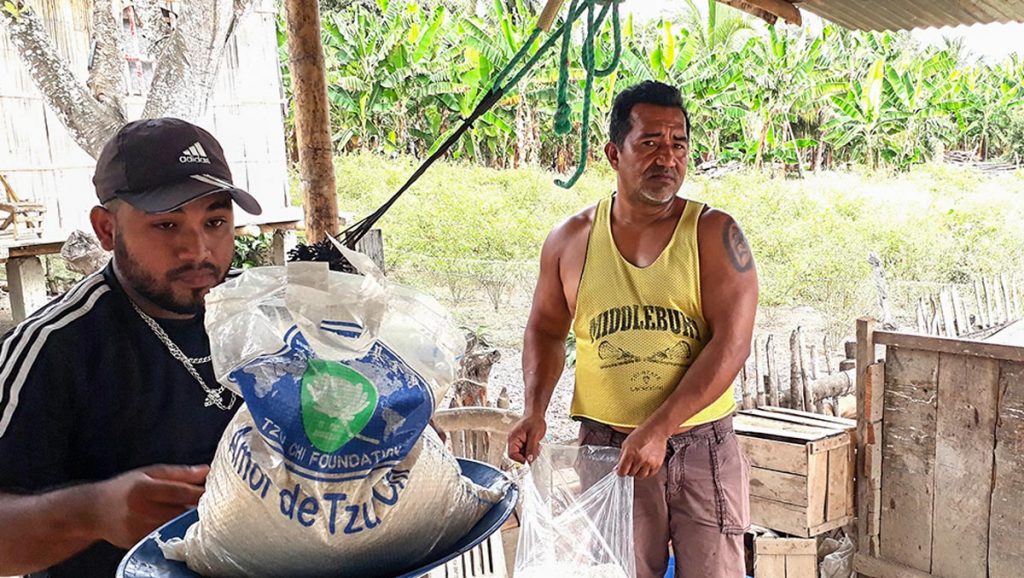
Tzu Chi Ecuador’s First Solo Disaster Relief Mission
At the beginning of April, 12 volunteers from Santa Ana, Manta, Portoviejo, and Canoa set out for Chunchi, six hours away. They went on to provide $49,500 in aid benefiting 43 families comprising 122 individuals. It was a genuine milestone for the team. “They were able to give to other people that weren’t from their community, and they were going through something very difficult. So, this was a great experience,” Jenyffer said.
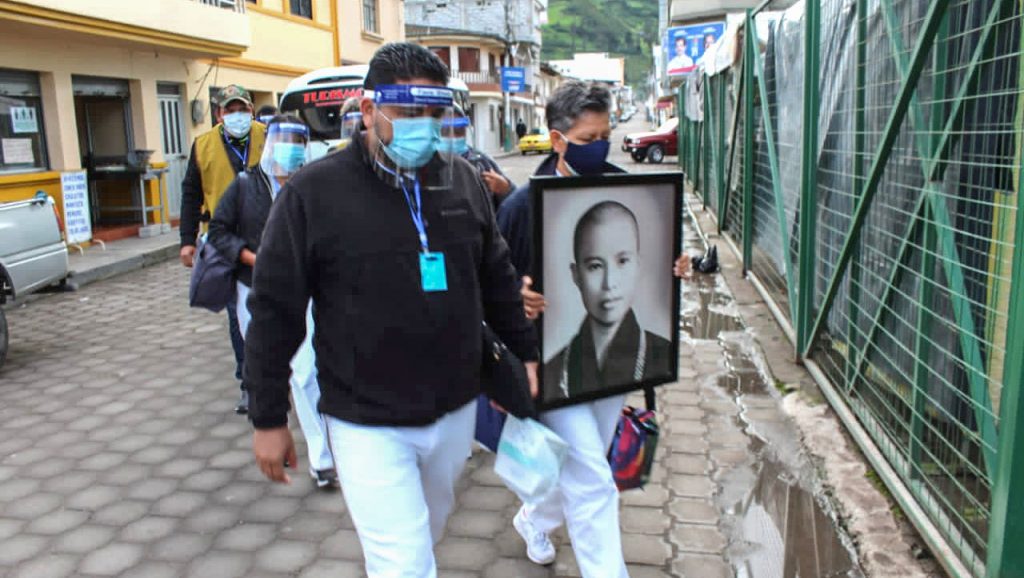
We showed what Tzu Chi does around the world to these people that never heard about Tzu Chi. It was pretty much the same that happened to us in 2016 after the earthquake when Tzu Chi volunteers came here and we were like, ‘Why are these people traveling all that distance in order to help?’ So, it was pretty much the feeling that these people were feeling, and we were in the other [position.]
Boris Garcia
Tzu Chi Volunteer
The aid was immensely appreciated and unexpected for care recipients like Blanca Guallpa, a 74-year-old woman who survived the landslide by holding on to a tree then was rescued from under the mud. And on the volunteer team, Rolando Ordonez, who is Boris’s brother-in-law, was equally thankful, saying:
My most sincere gratitude to Master and all the volunteers for the great opportunity given me to be part of this noble mission in Chunchi, where I was able to experience and see the faces of happiness and gratitude of those benefited, who never imagined that someone would come to give them a hand moved by compassion, which motivates me to continue being a volunteer.
Rolando Ordonez
Tzu Chi Community Volunteer
Looking Towards the Future
I have to tell you that people, really when they hear Tzu Chi, they hear ‘people that want to help.’ Especially now that we’ve been monthly giving out food distributions. Tzu Chi equals hope, Tzu Chi equals love, Tzu Chi equals compassion, Tzu Chi equals all that.
Jenyffer Ruiz
Tzu Chi Volunteer
To prove her heartfelt commitment to Tzu Chi, Jenyffer shared that “I made a vow of 5,000 volunteers in the next five years.” Responding to it, Boris stated, “I’m pretty sure we’re going to be able to do it. Because in five years we’ve accomplished a lot.”
Given his background in construction, Boris sees it from a building perspective, and what Tzu Chi Ecuador has built is a solid foundation. Although it is intangible, it is real.
The people we started to help in 2016, in those communities, right now, they know they’re getting the help, but at the same time, they can help other people. It is a circle, and it is a circle of virtue, all the people helping. And they’re doing the best that they can. Of course, there are many necessities there; they help.
Boris Garcia
Tzu Chi Volunteer
To date, the teams have provided 22,600 food kits during the course of 12 distributions completed between April 2020, and July 2021. At the same time, many aid recipients paid the love forward by giving to Tzu Chi’s bamboo banks, their donations totaling $10,768.28.
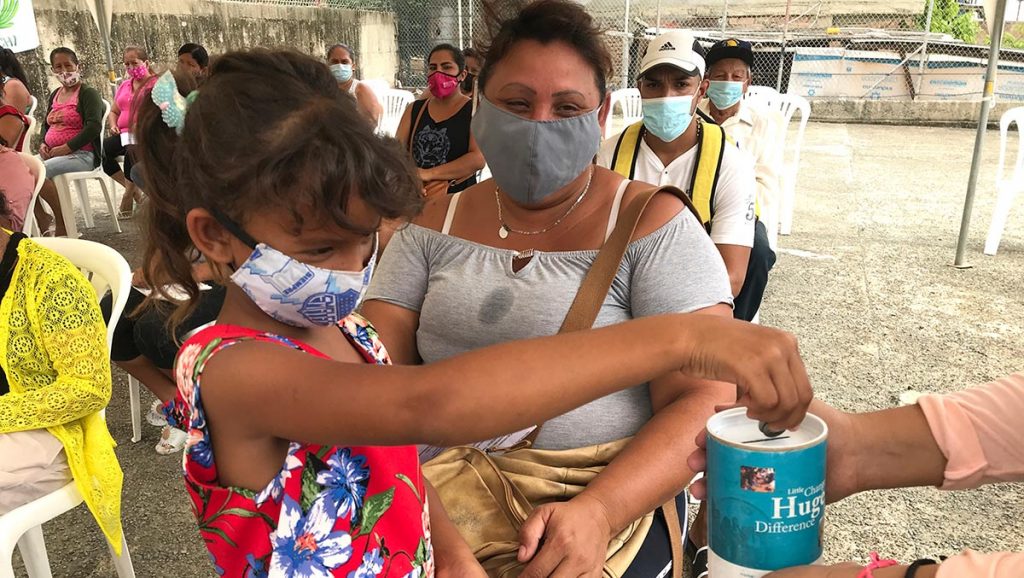
Helping is not the privilege of the rich, everyone can help.
Jing Si Aphorism by Dharma Master Cheng Yen
SHARE:

